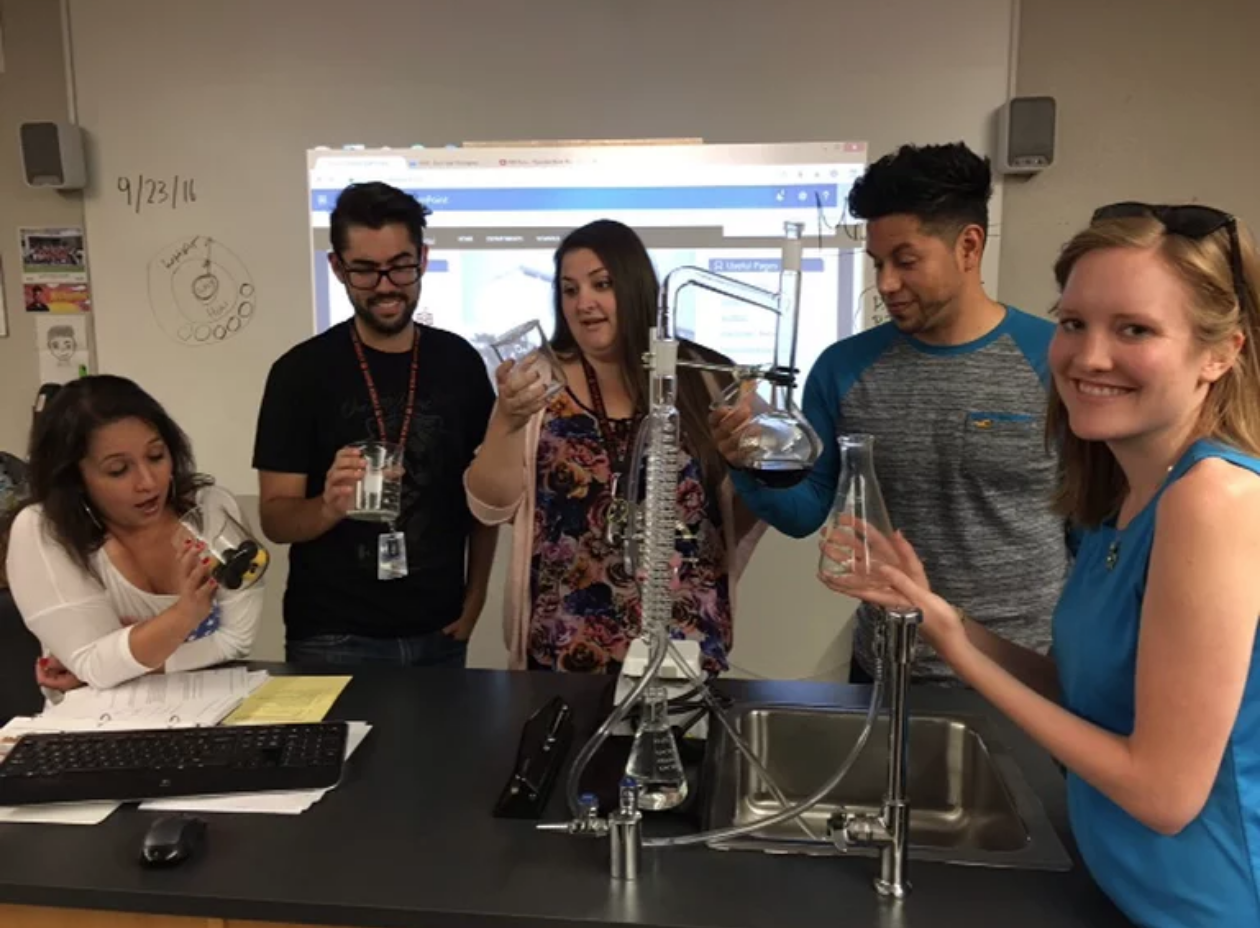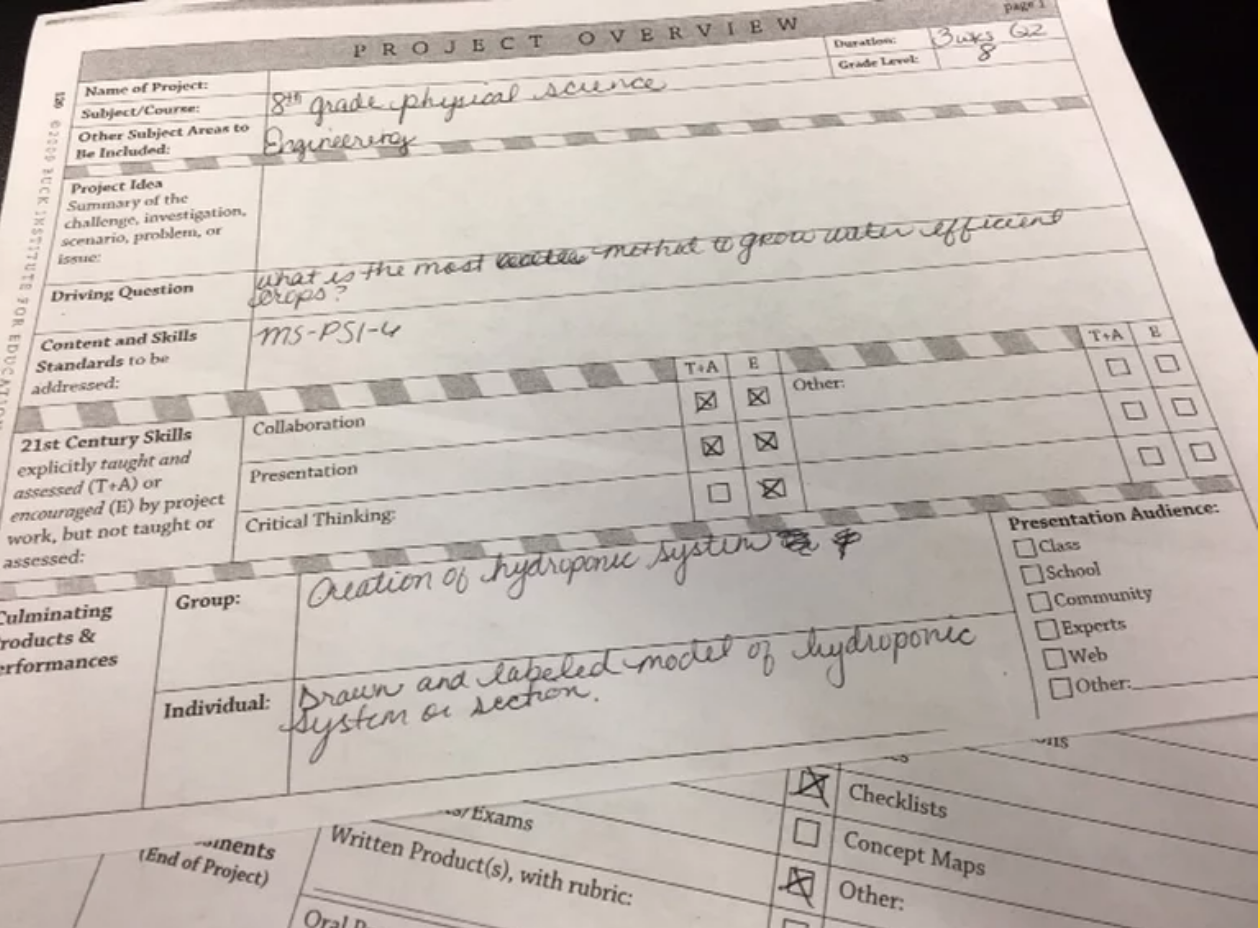Friday. Last day here at Gaston Middle School. And what a trip it has been. Our last day here we spent with the compelling Science department. This group of educators and teachers are challenging and strive to motivate. Also, let’s not forget that they’re capable of putting on quite the magic show, aka science in first-person.

The Science department really took full advantage of the PBL training session. They went to work right away with the students brainstorming, collaborating, and developing some mentally stimulating project questions. The 7th and 8th grade students have separate questions that will be integral in driving their research for their plant-based school garden projects. The questions are the following:
7th Grade
How do environmental conditions such as weather influence the growth potential of crops?
8th Grade
What is the most water efficient method to grow crops?
The questions for both the 8th and 7th grade students present a variety of opportunities to facilitate student learning, growth, and achievement. The 7th grade question challenges the students to research and analyze their region’s weather and climate and its effects on potential crop growth. Students will need to discover the amount of precipitation for each season and month, average temperature, and amount of sunshine that their area receives in order to calculate how local climate and environmental conditions will impact the potential of crop growth.
Additionally, the 7th grade students will utilize and enhance their flexibility and curiosity skills by discovering what other regions near them are more or less suitable for the crops they choose to grow. By expanding beyond their region, students increase their curiosity of geographically farther away towns and cities, even states. Students can decide to measure precipitation with a rain gauge to identify whether there is a sufficient amount of water needed to positively influence the growth of potential crops.
The ultimate goal of the 7th grade project is to construct a greenhouse that can be applied to one of the school gardens. Developing and building a greenhouse gives the students the opportunity to facilitate and monitor the environmental conditions of the crops atmosphere. The collection, interpretation, and presentation of data from the crops in the greenhouse can be used in a visual display project that influences the direction of long term growth of crops and plants within the greenhouse.
The PBL driving question of the 8th grade students, “what is the most water efficient method to grow crops?” presents an interesting scenario. Students will be able to flex their informed-skepticism and critical thinking skills. Additionally, the question requires collaboration and productive conversing amongst students. Beyond their research about water efficiency, different types of crop growth, and potential farming skill development, the students will be able to discover how ecologically sustainable the crops can be.
 The objective of the 8th grade PBL question is to have the students create an efficient and expandable hydroponic growing system for their school garden. Developing a hyrdoponic system for the school garden will require the students to take hands-on approach to the system design and construction. This type of project are giving students autonomy and the ability to use their science curriculum in conjunction with their mathematics one as well. Students can identify their best options, make information-based judgements, annd then give oral or written explanations of their reasoning. And the best part? Once their hydroponic system is successful, students have the opportunity to eat the fruits of their labor and discover nutritional lessons.
The objective of the 8th grade PBL question is to have the students create an efficient and expandable hydroponic growing system for their school garden. Developing a hyrdoponic system for the school garden will require the students to take hands-on approach to the system design and construction. This type of project are giving students autonomy and the ability to use their science curriculum in conjunction with their mathematics one as well. Students can identify their best options, make information-based judgements, annd then give oral or written explanations of their reasoning. And the best part? Once their hydroponic system is successful, students have the opportunity to eat the fruits of their labor and discover nutritional lessons.
Using questions and projects that give students the ability to apply them in a real-world setting facilitates much more than learning. It promotes human development, both emotionally and intellectually. Project Based Learning offers an endless amount of potential for students and teachers alike. From collaboration to critical thinking to creativity, PBL does more than just educate students, it gives them the chance to develop and grow as human beings.
Interested about PBL? Contact Educators of America today to discover what we can do to help you become a PBL classroom or school.
We will be writing one more post tomorrow to sum up our complete experience at Gaston Middle School and to give them the praise and thanks they deserve! Thank you Gaston Middle Science Department, we couldn’t have gone off on a better note. We look forward to keeping in contact and witnessing your students’ development.
